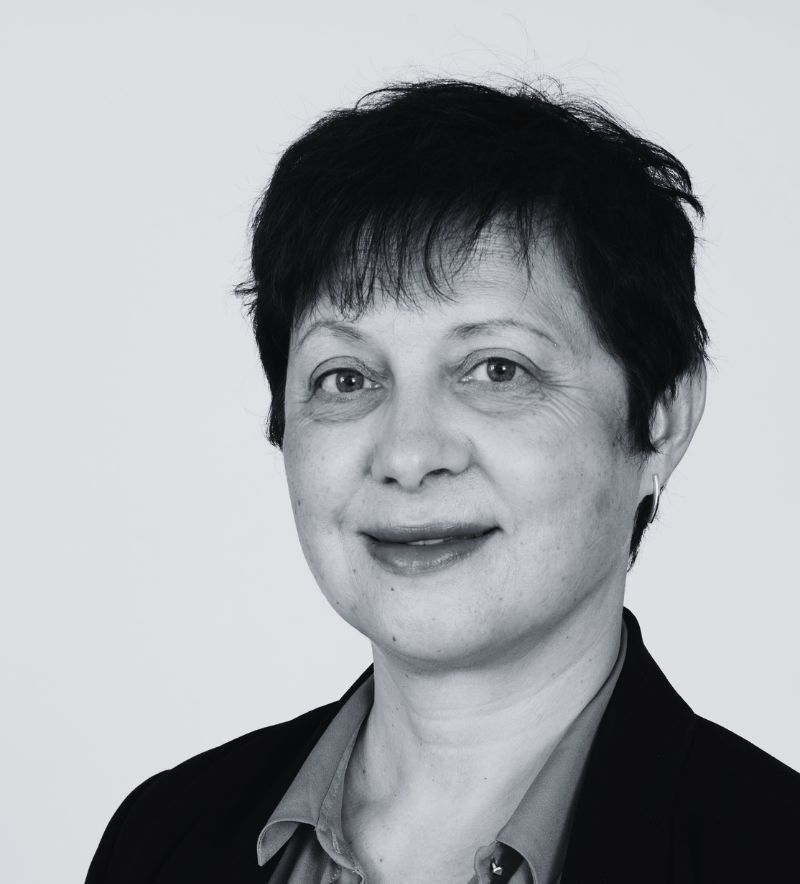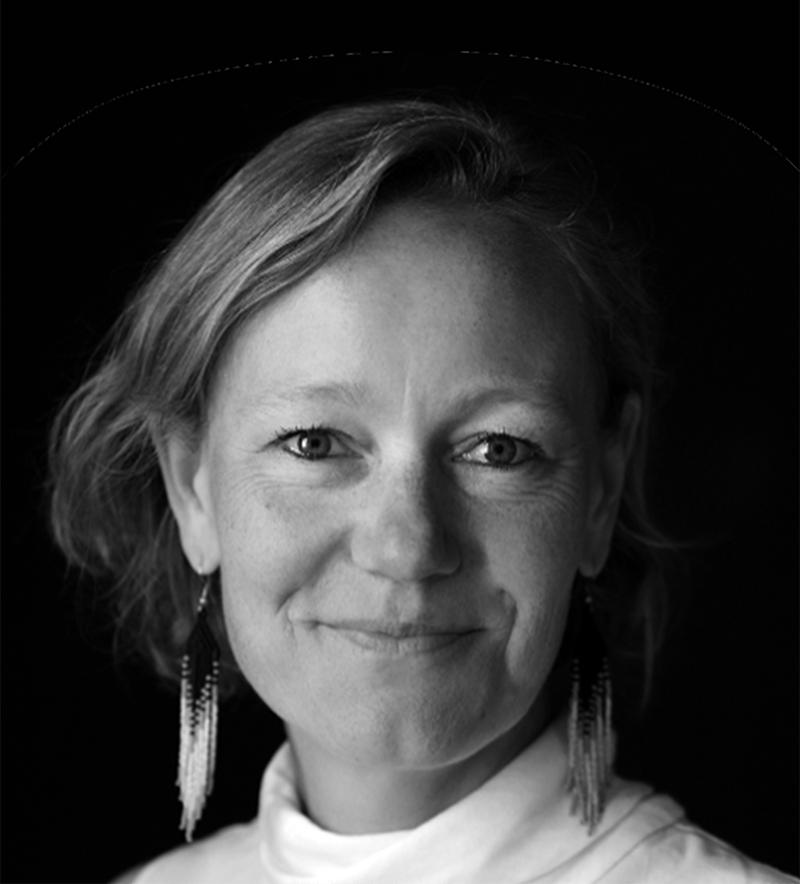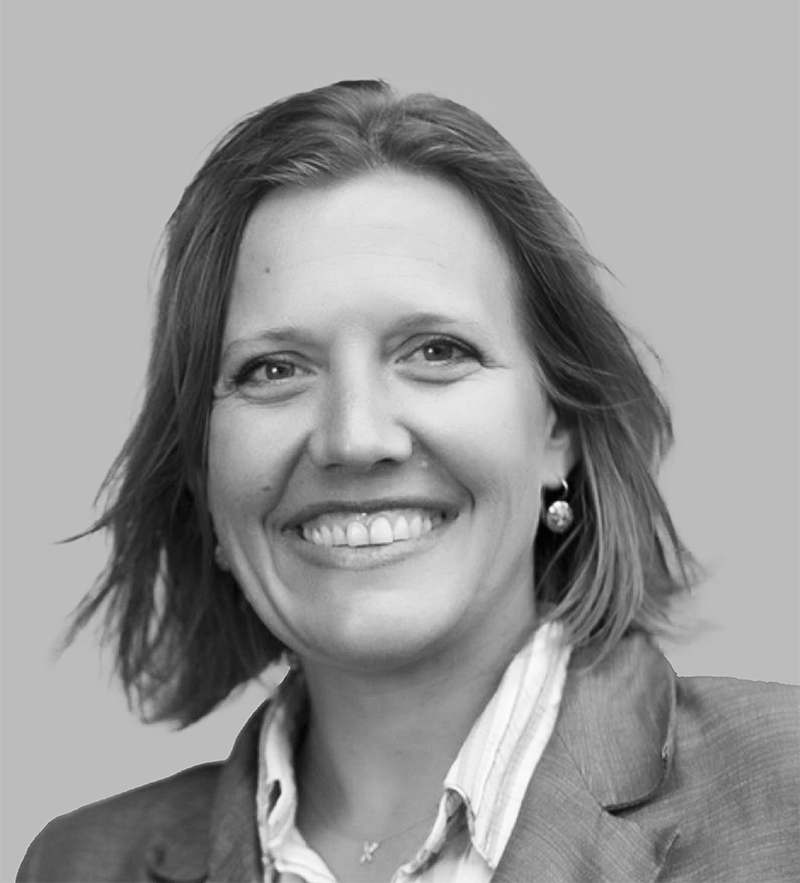We are an international, multi-disciplinary expert group dedicated to increasing cervical cancer screening participation.
Our Mission
Increasing cervical cancer screening participation among under-screened women
The Advancing Cervical CancEr ScreeningS (ACCESS) International Consensus Group on Cervical Cancer is committed to improving the health outcomes of under-screened women by increasing cervical cancer screening participation among this underserved population.
Our aim is to provide policymakers with the latest information and direction on cervical cancer screening, as well as share international best practices, so they can make decisions based on real-world programmatic experience and the best evidence available. The goal is to turn the tide and reverse the decline in screening uptake by supporting under-screened women and ensuring they have optimal access to this vital cancer prevention tool.
Why is this important?
Cervical cancer is the fourth most commonly occurring cancer and the fourth leading cause of cancer death in women.1 However, it is preventable through vaccination and screening and can be treated if detected early. There is also the prospect of eliminating cervical cancer entirely through effective use of these prevention tools.
The adoption of national cervical cancer screening programmes within high-income countries has led to a reduction in cervical cancer rates by up to 80%.2 Research in Europe has shown that women receiving regular screening decrease their risk of dying by up to 92% compared to women who are not screened regularly.3
Despite these successes, participation rates in screening programmes remain sub-optimal. Women considered to be under-screened are at risk of avoidable disease and mortality.1,4 This highlights a critical need for action.5
ACCESS Consensus Group Members
The ACCESS International Consensus Group on Cervical Cancer is made up of experts with a broad range of experience and expertise in women’s health — focussing on cervical cancer from clinical, epidemiological, academic, patient, and advocacy perspectives. Together, we work to review the latest available evidence that supports optimal cervical cancer screening strategies in high-income countries with organised cervical cancer screening programmes and make recommendations to relevant stakeholders and policymakers to advance women’s health by increasing the uptake of screening amongst under-screened women.

Professor Philippe Descamps
Co-Chair (France)

Athena Lamnisos
Co-Chair (United Kingdom)
Prof. Dr. rer. nat. Thomas Iftner (Germany)
Thomas Iftner is the Director of the Institute of Medical Virology and Epidemiology of Viral Diseases at the University Hospital of Tübingen, Germany and Full Professor of Experimental Virology. His research interests range from basic research on human papillomaviruses to clinical and epidemiological trials with 208 peer reviewed publications in Pubmed; 330 in Google Scholar; (citations above 15,000, h-Index 64; i10-index 164) along with 10 international patents.
On the basis of his research more than 70 students have been awarded PhD and MD degrees. Apart from this Prof. Iftner is providing support and guidance to worldwide leading companies involved in diagnostics and pharmaceutical research.
Thomas Iftner received his diploma in biology in 1985 and his doctorate from the University of Erlangen in 1988. His postgraduate training included a research fellowship at the University of California, Dept. of Microbiology and Immunology, Los Angeles, USA. From 1990 to 1997 he was at the University of Erlangen, where he habilitated in 1993. From 1997 to 2018, he was a full professor at the Eberhard Karls University of Tübingen and head of the Research Section for Experimental Virology. In April 2018, he took over as head of the Institute of Medical Virology. He founded the Molecular Medicine programs in 2006 at the University of Tübingen and was dean of studies for Molecular Medicine from 2006 to 2017. From 2009 to 2020, he was also Vice Dean in the Faculty of Medicine. Furthermore, he has been an associate professor at James Cook University, Townsville, Australia, from 2009-2018 and is CEO of the company UFE supporting start ups at Tuebingen, Germany. From 2011 – 2020 he was Member of the Board of Directors of the International Papillomavirus Society. Since 2020 he is affiliated with the National Institute of Virology at the ICCBS in Karachi, Pakistan and oversees its further development.
After activities as co-founder and director of the European Consortium Against Cervical Cancer (ECCA, Lyon, France), Iftner has been chairman and initiator of the Zervita project group since 2006, whose aim is to inform the public in Germany about risk factors, prevention, early detection and treatment of cervical carcinoma and its precursors, as well as about human papillomaviruses. He belonged to expert groups of the International Agency for Research on Cancer (IARC) in Lyon, for the preparation of the monograph on cervical cancer prevention and papillomaviruses, in which the valid risk classification of HPV genotypes was established, and the “Cervical Cancer Screening Handbook”.
The multinational cohort studies by Iftner and Dillner and Cuzick and Iftner are one of the most cited papers in national guidelines on cervical cancer screening. He is a member of the International Papillomavirus Society, the American Society of Microbiology, the German Society of Virology and member of the COMSTECH distinguished scholar program of the OIC.
Athena Lamnisos: Co-Chair (United Kingdom)
Athena Lamnisos is a senior third sector leader and is currently CEO of leading women’s health charity, The Eve Appeal which is focused on the five gynaecological cancers and prevention. Athena is experienced at forging partnerships between private, public and not for profit sectors. She has a track record of directing successful change programmes in the arena of public health and oncology and is passionate about making service user voices central to strategy. Her career spans extensive cross sector working from environmental NGO Friends of the Earth which she led the communications and fundraising directorate through to leading public sector campaigns as a founding Board director of leading strategic communications consultancy Forster. She has held numerous trustee roles including at food waste charity FareShare and as a founding trustee of restorative justice charity The Forgiveness Project.
Athena has extensive experience in UK and international patient participation and stakeholder engagement work around gynaecological cancers and specifically, cervical cancer prevention. She has led international patient participation events and presented research papers and evidence as part of ENGAGE (the European Society of Gynaecological Oncology) and BGCS (the British Gynaecological Cancer Society). She has sat on policy forums on women’s health strategy, cancer prevention and HPV, genomics (and genetic testing programmes around BRCA and Lynch Syndrome) as well as national cancer strategy convened by NHSE, DHSC and Health Improvement Scotland. Athena represents Eve as part of the Hatfield Vision Group convened by the FSRH (Faculty of Sexual and Reproductive Health).

Dr. Francesc Xavier Bosch
Spain

Dr. Jeanne Conry
United States

Dr. Rosario Granados
Spain

Prof. Dr. Thomas Iftner
Germany

Dr. Joseph Monsonego
France

Ody Neisingh
Netherlands

Dr. Lananh Nguyen
Canada

Dr. Mairead O’Connor
Ireland

Dr. Jennifer Susan Smith
United States
Dr. Lananh Nguyen (Canada)
Dr. Nguyen is the Director of Cytopathology at Unity Health Toronto, Canada. She is also an Associate Professor and Associate Graduate Faculty Member at the University of Toronto.
Dr. Nguyen is affiliated with several professional associations including the Canadian Association on Neuropathologists (CANP), Ontario Medical Association (OMA), and American Society of Cytopathology (ASC). She has been Vice-Chair of the Cytopathology Committee and Expert Advisor on the Quality Measures Technical Expert Panel for the College of American Pathologists (CAP). She is also an Expert Consultant to the European Hologic Cervical Health Advisory Board.
Dr. Francesc Xavier Bosch (Spain)
Dr. Bosch is a Senior Consultant for the Institute d’Investigació Biomèdica de Bellvitge (IDIBELL) as well as an Honorific Consultant to the Catalan Institute of Oncology (ICO) at Hospitalet de Llobregat in Barcelona, Spain. He is the founder of both the Papillomavirus Research (PVR) journal and the e-learning platform, www.eoncologia.net, specialising in e-courses on cervical cancer prevention.
Dr. Bosch’s epidemiological studies on cancers linked to infectious agents have played a catalytic role for the initiation of the vaccine trials and programs for HBV and HPV, as well as for the evaluation of HPV tests as screening tools. His interests now reside in sharing clinically important scientific information and in studies that integrate HPV vaccination and screening in environments with limited resources.
Dr. Bosch has published over 500 original publications, over 25 monograph books & major reviews, and has over 900 scientific communications at medical meetings.
Dr. Rosario Granados, MD, FIAC (Spain)
Rosario Granados, MD, PhD, FIAC is the Chair of the Pathology Department of the Hospital Universitario de Getafe (Servicio Madrileño de Salud), Ex-President of the European Federation of Cytology Societies (EFCS) and of the Spanish Society of Cytology.
She is specialised in Cytopathology with a Fellowship in Cytopathology at the Brigham & Women´s Hospital (Harvard University, 1989-1990), holding the American Board of Cytopathology and the International Board of Cytopathology. She is a fellow of the International Academy of Cytology (IAC).
She is currently collaborating with the WHO-IARC in the European Cervical Screening Quality Assurance Update (EUCervScreen QA), supported by the European Commission.
She has also contributed to the writing of the Spanish Guidelines for Cervical Cancer Screening with the Spanish Association of Cervical Pathology and Colposcopy (AEPCC 2014 and 2022). She is actively involved in the implantation of a primary HPV screening Programme in Madrid, chairing one of the four screening units conforming the diagnostic core of the programme. She is also involved in clinical research and has recently been the principal investigator of a longitudinal study with mRNA HPV testing.
Athena Lamnisos: Co-Chair (United Kingdom)
Athena Lamnisos is a senior third sector leader and is currently CEO of leading women’s health charity, The Eve Appeal which is focused on the five gynaecological cancers and prevention. Athena is experienced at forging partnerships between private, public and not for profit sectors. She has a track record of directing successful change programmes in the arena of public health and oncology and is passionate about making service user voices central to strategy. Her career spans extensive cross sector working from environmental NGO Friends of the Earth which she led the communications and fundraising directorate through to leading public sector campaigns as a founding Board director of leading strategic communications consultancy Forster. She has held numerous trustee roles including at food waste charity FareShare and as a founding trustee of restorative justice charity The Forgiveness Project.
Athena has extensive experience in UK and international patient participation and stakeholder engagement work around gynaecological cancers and specifically, cervical cancer prevention. She has led international patient participation events and presented research papers and evidence as part of ENGAGE (the European Society of Gynaecological Oncology) and BGCS (the British Gynaecological Cancer Society). She has sat on policy forums on women’s health strategy, cancer prevention and HPV, genomics (and genetic testing programmes around BRCA and Lynch Syndrome) as well as national cancer strategy convened by NHSE, DHSC and Health Improvement Scotland. Athena represents Eve as part of the Hatfield Vision Group convened by the FSRH (Faculty of Sexual and Reproductive Health).
Dr. Joseph Monsonego (France)
Dr. Monsonego is a Gynaecologist based in Paris, France, where he specialises in colposcopy and in the management of HPV associated diseases.
He attended the Medical University of Paris and is the former Head of the Onco-Gynaecological and Breast Screening Unit (Paris Nord University, Department of Professor Lucien Israël – Bobigny). His institutional affiliations include Medical Director of Institut of the Cervix Paris, France; Member of the President and Founder of EUROGIN (European Research Organization on Genital Infection and Neoplasia); Expert Consultant on Cancer for the World Health Organization (WHO/OMS); and President of the international Women Against Cervical Cancer (WACC) Foundation.
Dr. Monsonego’s specialist areas of research include: Management of abnormal pap smear and papillomavirus infection, Cervical cancer screening and prevention, Colposcopy and treatment of genital papillomavirus lesions, Clinical trials of HPV vaccines, Prophylactic and therapeutic vaccines for human papillomavirus infections, Screening for cervical cancers, colposcopy, and drugs for the treatment of HPV-related lesions, and new technologies applied to cervical cancer screening and management, such as HPV DNA testing and genotyping, liquid-based cytology, real-time screening methods, and molecular markers.
Dr. Jennifer Susan Smith (United States)
Dr. Smith is an Epidemiology Professor at the Gillings School of Global Public Health, North Carolina.
She is also affiliated with the UNC Lineberger Comprehensive Cancer Center, UNC Center for Aids Research, and the UNC Center for Women’s Health Research.
Additionally, Dr. Smith has conducted research on HPV infection and associated cervical neoplasia and cancer since 1995 and has published over 200 articles in international peer-reviewed journals. Her current research focuses on epidemiological studies of human papillomavirus (HPV) and cervical cancer worldwide (primarily in China, Kenya, South Africa, and North Carolina), with a focus on prevention via screening, HPV self-screening, and prophylactic vaccines.
Dr. Smith is currently conducting self-screening demonstration projects of HPV infection among high-risk women in Mombasa, Kenya, and in rural North Carolina.
Professor Philippe Descamps: Co-Chair (France)
Professor Descamps is a Distinguished Professor of Obstetrics and Gynaecology and has been the Head of Obstetrics and Gynaecology at Angers University Hospital in France since 1999. He is also the Director of the Regional Reference Centre for Endometriosis, Endo Ref-Angers.
Professor Descamps is the Vice President of the International Federation of Gynaecology and Obstetrics (FIGO) and was elected as the French representative to the FIGO Council (2015 – 2021). He has sat on the Minimal Access Surgery Committee (2018 – 2021) and was a member of FIGO’s Strategic Planning Committee (2020 – 2021).
At a national level, he has supported the French National College of Gynaecologists and Obstetricians (CNGOF) by serving as the President of its International Relations Committee (2012 – present) and a member of its Board and Bureau (2005 – present). He was also the Vice President of the French Society of Gynaecological and Pelvic Surgery (SCGP) between 2011 and 2021.
Dr. Mairead O'Connor (Ireland)
Dr. O’Connor is a researcher and ICE Postdoctoral Research Fellow at Trinity College Dublin and has been involved in CERVIVA, a multi-disciplinary research consortium investigating cervical cancer screening and HPV-associated diseases since 2009.
She has over 12 years of experience in planning, coordinating, and conducting research studies underpinned by behavioural science in cancer prevention. Much of her research has focused on understanding the psychological impact of cervical cancer screening on women.
She has collaborated with national and international stakeholders across diverse disciplines and institutions including the National Cancer Registry Ireland (NCRI), the University College Cork (UCC) and the National Cancer Control Programme (NCCP).
Dr. Jeanne Conry (United States)
Jeanne Conry, MD, PhD is President of the Environmental Health Leadership Foundation and Executive Board Member for the Forum Institute. She was President of the International Federation of Gynaecology and Obstetrics from 2021 through 2023. She was the 64th President of the American College of Obstetricians and Gynaecologists, a membership organisation representing over 57,000 OBGYNS in the USA. She chaired the Women’s Preventive Services Initiative, a United States coalition of health professional organisations and advocates with expertise in women’s health. WPSI develops, reviews and updates recommendations for preventive healthcare. While FIGO President she served as vice Chair for the Partnership on Maternal, Newborn and Child Health Partner Engagement in Country Committee and a member of its Health Care Professionals Association. She introduced the US National Maternal Health Initiative to reduce maternal mortality and improve health before, during and after pregnancy. Dr. Conry leads national policy on Reproductive Health and the Environment and received the Environmental Protection Agency Health Champion Award. Dr. Conry served in leadership as an obstetrician gynaecologist at Kaiser Permanente, the largest health maintenance organisation in the United States. She received the Visionary Leadership Award from the University of California, and The United States House of Representatives honoured her for accomplishments in women’s health. Dr. Conry earned her medical degree and completed residency at the University of California, Davis where she served as an Associate Clinical Professor. She has a PhD in biology from the University of Colorado. Dr. Conry has been awarded Honorary Fellowships in eleven global obstetric and gynaecologic societies: The Society of Obstetricians and Gynaecologists of Canada, The Taiwan Association of Obstetricians and Gynaecologists, The German Society for Gynecology and Obstetrics, The Royal College of Physicians of Ireland- the Institute of Obstetricians and Gynaecologists, The Indian College of Obstetricians and Gynaecologists, The Royal College of Obstetricians and Gynaecologists, The Asia and Oceania Federation of Obstetrics and Gynaecology, the French Society of Obstetricians and Gynaecologists, the European Board and College of Obstetrics and Gynaecology, the Philippine Obstetrical and Gynaecological Society, and The International Academy of Human Reproduction.
Ody Neisingh (Netherlands)
Ody Neisingh is a seasoned public affairs professional with extensive experience in gender equality, human rights, and sexual and reproductive health advocacy. Currently serving as Coordinator of Public Affairs at WOMEN Inc. in Amsterdam, she leads campaigns on gender equality, including significant political advocacy during the 2021 elections. She also manages programs aimed at reforming child care policies, contributing to a €2.5 billion increase in the national child care budget.
Ody is a member of the European Economic and Social Committee (EESC), where she collaborates with EU institutions to develop consensus-based opinions on legislation concerning gender equality, LGBTIQ rights, and mental health. She has played a key role as rapporteur on issues like gender-based violence and gender budgeting.
Her previous roles include Senior Advisor on Women’s Economic Empowerment at UN Women, Program Manager at the Humanist Union, and Advocacy Officer at Rutgers, where she contributed to expanding paternity leave in the Netherlands and led campaigns on sexual and reproductive health rights.
Ody holds a Master’s in International Relations & Diplomacy from the University of Antwerp and a Bachelor’s degree in Clinical and Health Psychology from Utrecht University. She has a passion for creative writing, with several publications to her name, and is fluent in Dutch and English, with proficiency in German and French.
Recommendations
For the first time ever, we have the opportunity to eliminate a type of cancer. For high-income countries with organised screening and vaccination programmes, cervical cancer elimination is a realistic possibility in the coming years. We have the tools to prevent cervical cancer, but low uptake rates of preventative measures means that we risk going backwards rather than forwards. Screening is the most impactful intervention to reduce the burden of cervical cancer in the short term, but screening participation rates are sub-optimal in many high-income countries, and, in some cases, they have even been declining.
Some of the lowest-income women in the most disadvantaged communities are at the greatest risk from cervical cancer, partly as a result of lower rates of screening participation. Urgent action is needed to address low and declining screening participation rates and to stop women dying from this largely preventable disease. There is a particular need for initiatives targeted at under-screened groups to address this inequity.
The Advancing Cervical CancEr ScreeningS (ACCESS) International Consensus Group on Cervical Cancer, a multi-disciplinary group of leading experts in the field, calls on governments and healthcare authorities to:
1. Develop cervical cancer national elimination plans with goals for elimination by a defined date, including ambitious national screening programme participation targets at the population level
2. Implement targeted and culturally-relevant education, information and awareness-raising initiatives, particularly focused on under-screened women
3. Improve the accessibility of cervical cancer screening
4. Support healthcare professionals to increase participation in cervical cancer screening
5. Encourage and support the creation of national cervical cancer patient advocacy groups and national cervical cancer prevention coalitions
6. Ensure that health insurance appropriately covers screening in all high-income countries
Publications
- Bridging policy and action toward community-centred care. Innovative solutions to advance equitable access to cervical cancer screening in Canada – ACCESS-Women’s Health Coalition recommendations from a stakeholder workshop in Alberta, Canada [November 2025]
- ACCESS and ZERVITA e.V. release recommendations for a national strategy to eliminate HPV-related cancers in Germany [November 2025]
- Improving cervical cancer detection requires multidimensional strategies: reflections from Madrid [November, 2025] – HPV World
- ACCESS International Consensus Group – One solution is not enough: the need for comprehensive, innovative strategies to increase cervical cancer screening [July 2025] – HPV World
- HPV self-collection may expand screening access, but it should not replace standard care [June, 2025] – Healio
- Cervical cancer screening: Sharing best practices and addressing common challenges in cervical cancer screening programs [October, 2024] – International Journal of Cancer
- ACCESS International Consensus Group – Turning the tide: recommendations to increase cervical cancer screening among under-screened women [March, 2024] – HPV World
- Turning the tide-Recommendations to increase cervical cancer screening among women who are underscreened [June, 2024] – International Journal of Gynecology & Obstetrics
- Eliminating cervical cancer to save women’s lives [March, 2024] – POLITICO.eu
Latest News
- [September 2025] Germany’s Guideline Group for Cervical Cancer Prevention issues an official statement opposing the use of HPV self-tests for women aged 20–34 and reaffirming its recommendation for structured, clinician-supervised screening.
- [September 2025] Public Health and Prevention Minister Ashley Dalton MP replies to ACCESS UK Group Joint Letter, outlining ongoing Government efforts to achieve cervical cancer elimination in England.
- [July 2025] ACCESS Consensus Group and ZERVITA e.V. convene expert roundtable to drive a national strategy for the elimination of HPV-related cancers in Germany.
- [June 2025] ACCESS UK Group Joint letter to DHSC to clarify accountability for cervical cancer elimination plan.
- [March 2025] ACCESS UK Group launches Consensus Statement to tackle inequalities and barriers in cervical screening, and advance cervical cancer elimination efforts in the UK.
- [January 2024] EU Policy Event 2024: ACCESS Consensus Group calls on the European Union and national governments to step up efforts in the fight against cervical cancer.
- Other Resources
Contact Us
For any queries regarding the work of the group, expressions of interest to join the group or to become a sponsor, please contact secretariat@accesscg.org.
The work of the ACCESS Consensus Group is supported by Hologic. Hologic has no editorial control over the content produced by the group.
References
1 Sung H, et al. Global Cancer Statistics 2020: GLOBOCAN Estimates of Incidence and Mortality Worldwide for 36 Cancers in 185 Countries. CA Cancer J Clin. 2021;71(3):209-249.
2 Fuzzell LN, et al. Cervical cancer screening in the United States: Challenges and potential solutions for underscreened groups. Prev Med. 2021 Mar;144:106400.
3 Jansen EEL, et al. Effect of organised cervical cancer screening on cervical cancer mortality in Europe: a systematic review. Eur J Cancer. 2020 Mar;127:207-223.
4 Serrano B, et al. Worldwide use of HPV self-sampling for cervical cancer screening. Prev Med. 2022 Jan;154:106900.
5 Gianino MM, et al. Organized screening programmes for breast and cervical cancer in 17 EU countries: trajectories of attendance rates. BMC Public Health 18, 1236 (2018).
